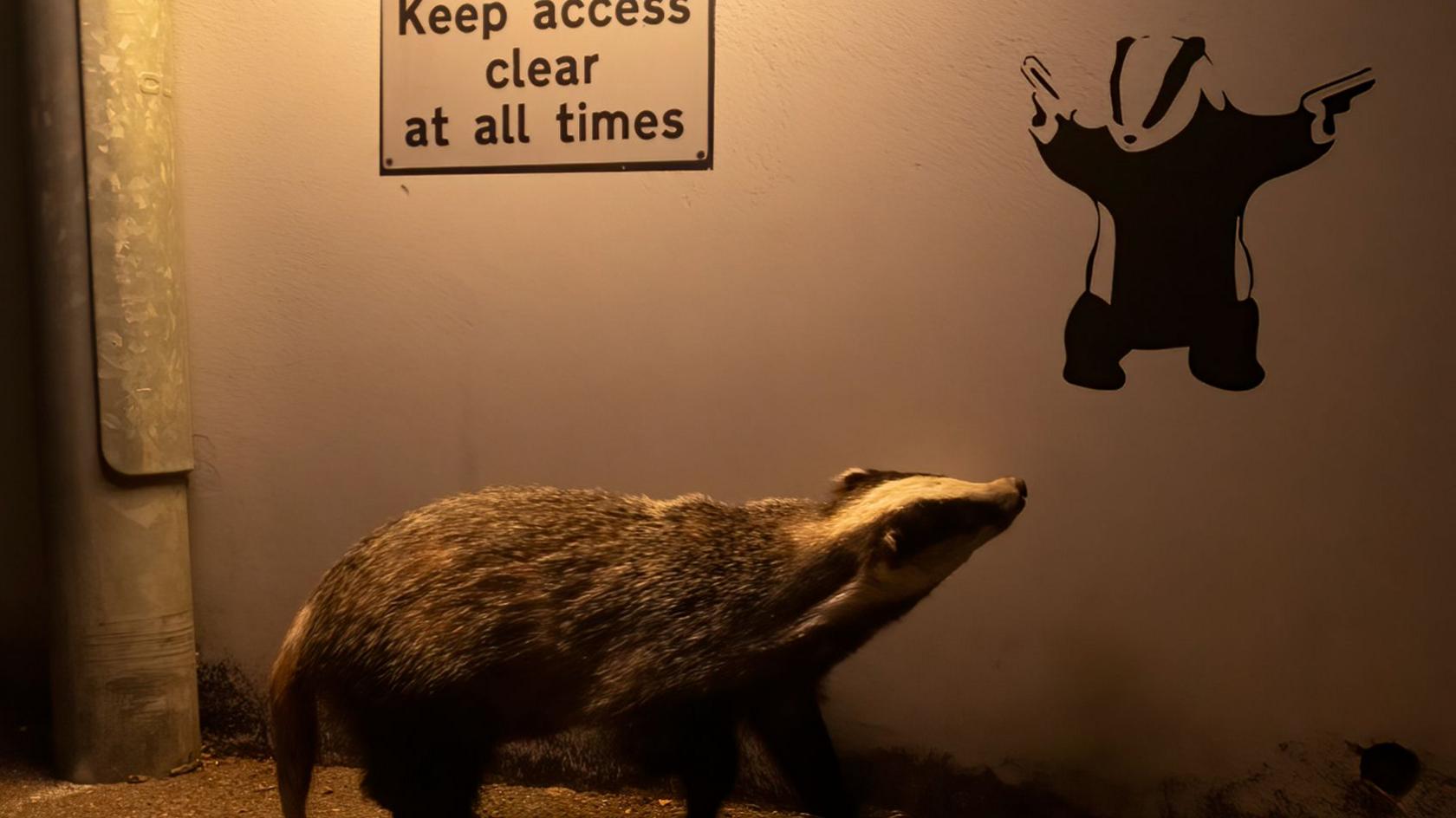'I used to work in schools - now I rescue badgers'
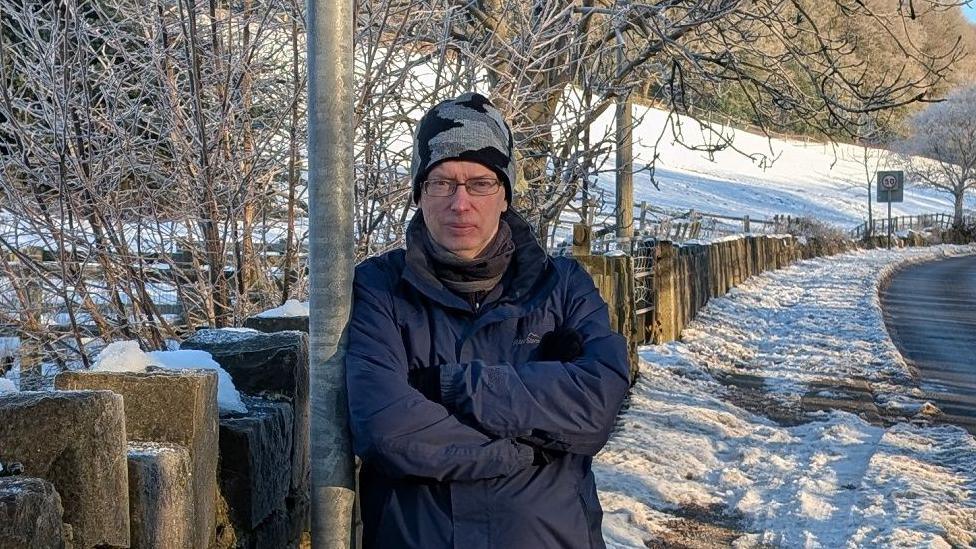
Adrian Potter became known as the Badger Man, but also deals with deer and other large mammals involved in road accidents
- Published
When the "badger phone" rings, it's answered by retired primary school teacher Adrian Potter - a man who defies the expression "never work with animals or children".
All across Kirklees, the council, police, vets, drivers in a sticky situation, know he is the man to call.
When Mr Potter gave up teaching, he knew he wanted to move into conservation. At first he began working the with RSPB, and then he "bumped into" someone from the local Badger Trust.
Badgers are legally protected for most of the year, he says, and so he became involved with assisting police, rescue centres and vets.
Soon he was rescuing other wild large mammals, including foxes and deer.
"There weren't actually many people who were prepared to give up their time to the extent I was, and to get their hands dirty," he says.
Most people, he says, encounter dead badgers at the roadside, but live ones need "people like myself".
"There needs to be some form of service to deal with these incidents to assure the public that somebody out there cares and is doing something," he says.
"It seemed to me the handling of these incidents wasn't being taken as seriously as it should be. Very few casualties were being recorded and examined.
"So it was a great opportunity to get out there and get involved with the animals, whether they were dead or alive, to handle them and to collect my own raw data."
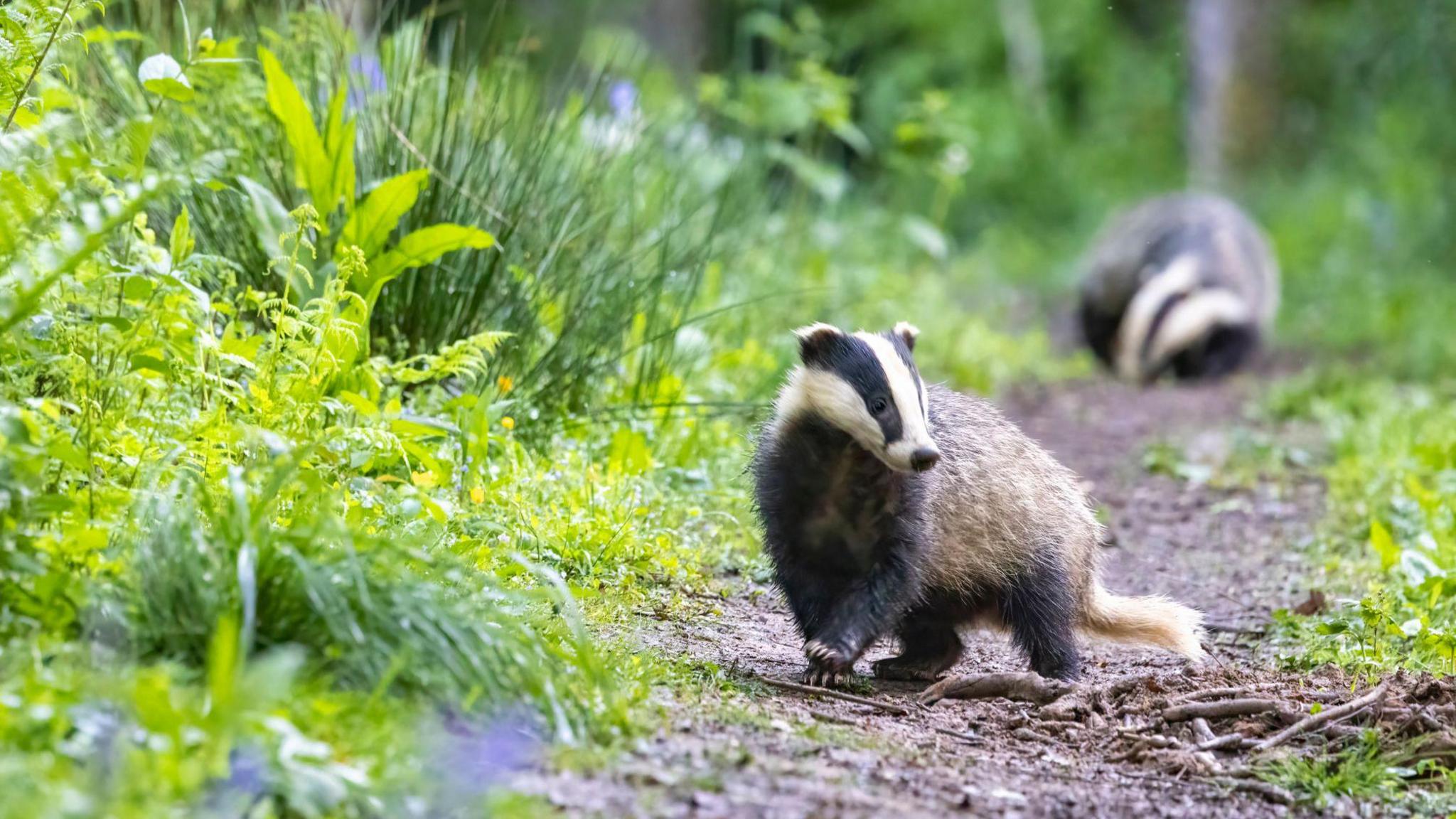
Most people only ever encounter dead badgers, says animal rescuer Adrian Potter
When a badger has been hit by a car or found injured, dead or dying, Mr Potter leaves his home in Almondbury and acts as an extra emergency service.
"If it was definitely a case of a badger that was alive, I would load up my car with the cage and any other tools I might think I need and make sure I've got another reliable person to help, because you don't catch a badger on your own," he says.
"Once we get it in the cage, which is easier said than done, we need to get it to a vet to get it looked at and see if it can be saved.
"If it can be saved it might require long-term rehabilitation, in which case it needs to go to a rescue centre for proper care, or if short-term we'll look to release it as quickly as possible so that it can go back to where it belongs."
More recently, Mr Potter has been dealing with deer and even after many years of rescuing wildlife, he still finds caring for dying animals emotional.
"There was one recently where I was led to believe the deer was dead and when I approached it I found out it was alive, the shock really upset me," he says.
"When you look at an animal like that, a beautiful powerful animal that can't get up, that is beyond help, that needs putting down, it is very upsetting.
"That's one of the things about deer. Every incident I'm involved with deer where they're still alive is traumatic, not just for me but the other people involved."
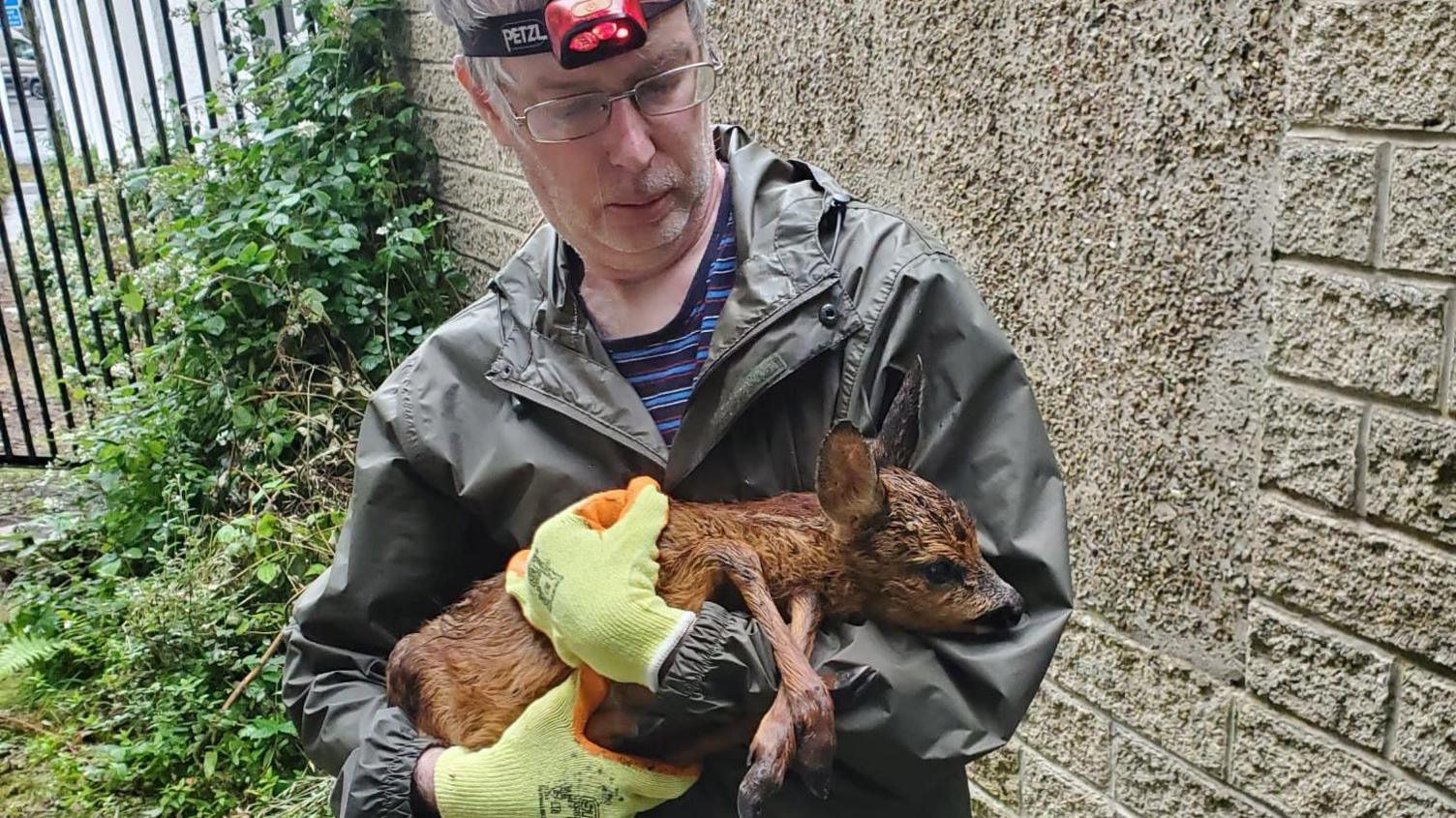
Adrian Potter also cares for deer injured in road incidents
Traffic is the biggest killer of wild animals, says Mr Potter.
"I really don't think we take the issues as strongly as we should in this country.
"There are countries, of course, where new roads are built, the wildlife is considered and they are given special safe underpasses or overpasses to cross the roads.
"That very rarely happens in this country. When it does happen it relies on an outsider campaigning tirelessly to make it happen - we need more signage. In some countries and actually in some parts of this country, but not here, there are actually organised teams who respond.
"In Dorset there's a deer dispatch team and there are 50 trained volunteers to deal with deer incidents.
"Here there's just me and I only exist because I've put myself forward."
Deer often run away from accidents injured, leaving them unable to heal themselves and dying as a result of their injuries.
"Deer do often get away from accidents with broken legs and most of them are doomed, but there was one that survived," he says.
"Everybody told me the deer was badly injured, it actually had been chased by a dog and somebody had opened a gate to a back garden so it could escape, so it was in somebody's back garden when I arrived.
"Everybody was telling me this deer was seriously injured and actually it wasn't. It had three legs and it had learned to live with three legs.
"Its damaged leg - which was half a leg if you like, a stump that was fully healed - it was able to walk on it and it could run on its three legs.
"Once I'd assessed this situation I convinced the vet this deer didn't need putting down, it could look after itself. It had been looking after itself for some time. It was a survivor and it deserved to carry on living."
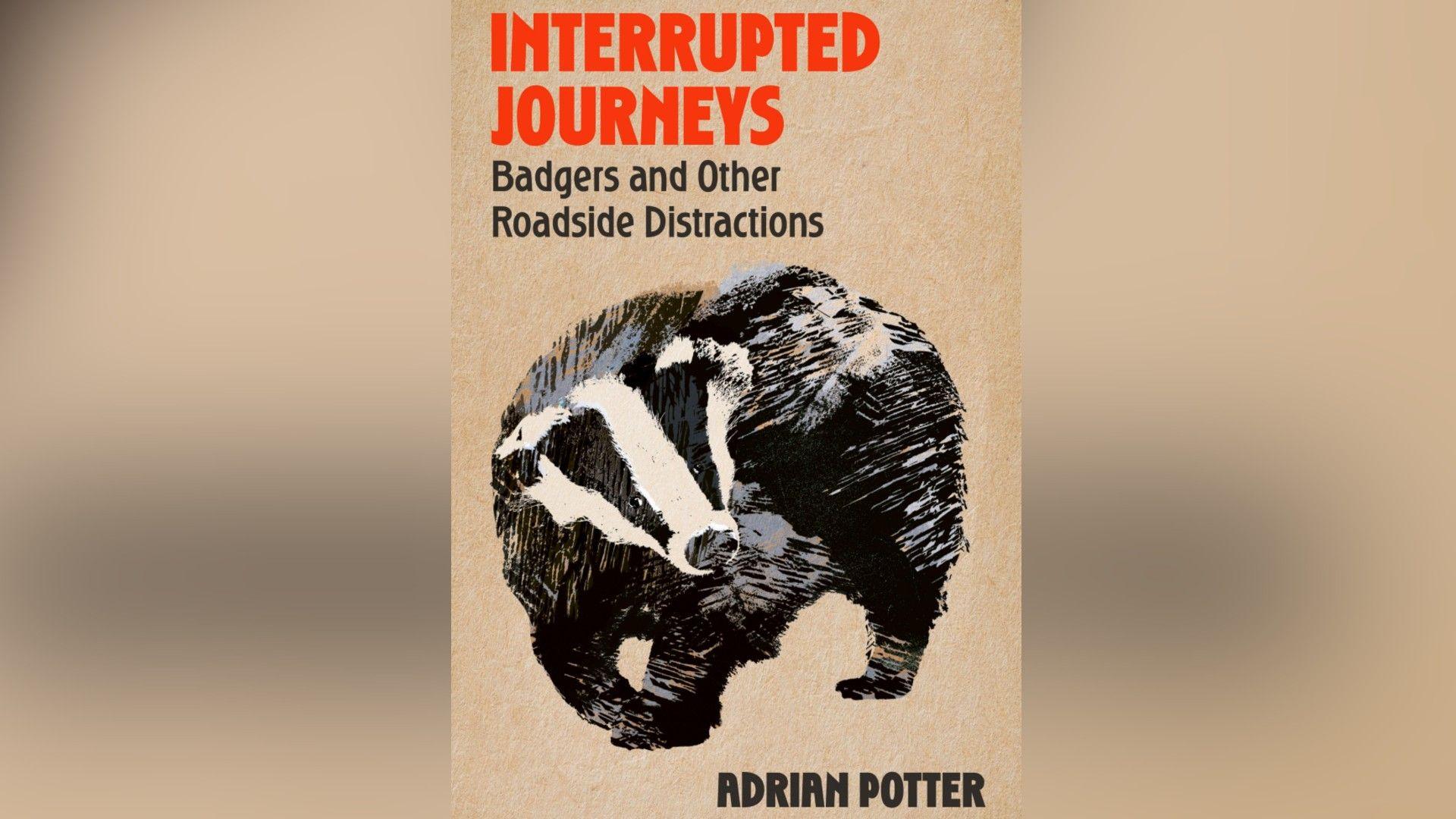
Adrian Potter's book was released on 28 August
Mr Potter decided because of his "unique perspective" he wanted to share what he had learned rescuing animals.
And so his book Interrupted Journeys: Badgers and Other Roadside Distractions came to be written.
"I get a good feeling out of the fact I was there and able to deal with the animal," he says.
"A lot of people say to me 'I don't know how you do it' but my perspective is that somebody who cares about the animals and knows what to do is there.
"I don't like the idea of knowing these things happen and burying my head in the sand. I'd rather deal with it."
Get in touch
Tell us which stories we should cover in Yorkshire
Listen to highlights from West Yorkshire on BBC Sounds, catch up with the latest episode of Look North.
Related topics
Related stories
- Published20 August
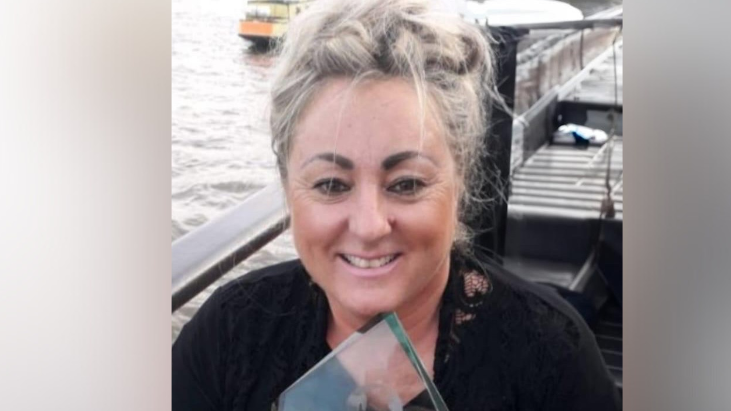
- Published5 February
